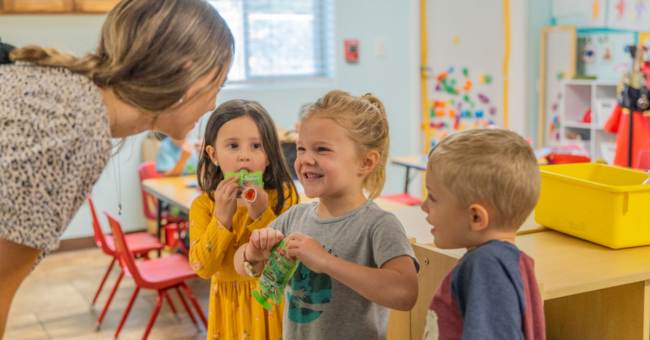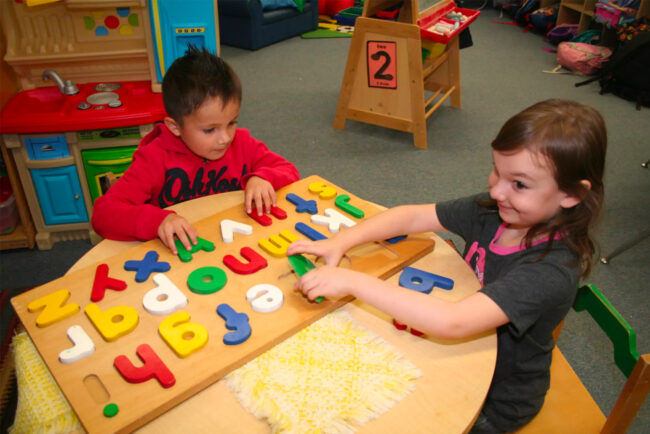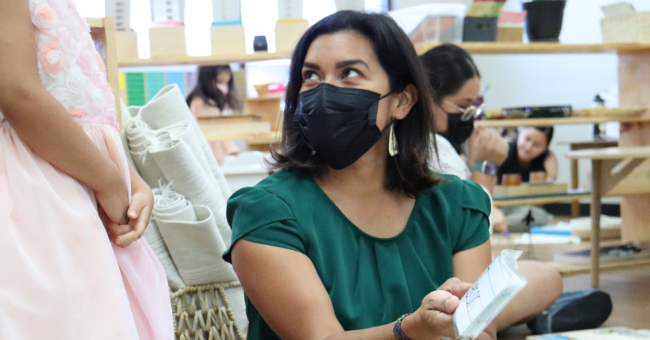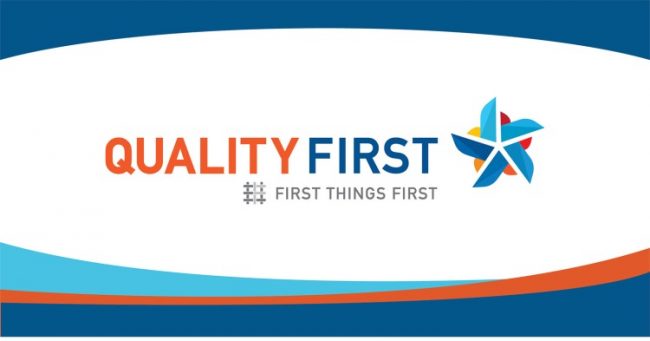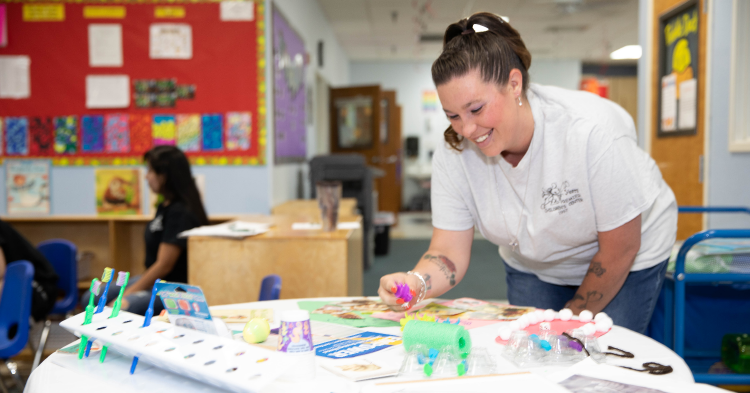
When Oksana Beatty was a Quality First coach, she approached her job of working with child care providers this way: “I want you to get me out of this job.”
She worked with early care providers in northern and eastern Arizona to improve the quality of their programs through individualized coaching.
“The journey of seeing a classroom shift and knowing that the techniques I shared work with individuals and children, those are the really big wins,” Beatty said.
As Arizona’s early childhood agency, First Things First created the Quality First program to help child care providers in the state improve the quality of their programs in ways that help young children be ready for kindergarten. Participating in Quality First is free for regulated child care centers, homes and preschool programs in Arizona.
This support may include: professional development and coaching, specialized assistance from a team of early childhood experts and funding to help support improvements to classrooms.
Today, Beatty helps to lead the expansion of Quality First across Arizona. Her experiences as a coach and years as a lead preschool teacher help her understand the challenges that child care providers face daily.
The Quality First coach begins with establishing a foundation for a relationship, Beatty said.
This is a key component of letting the provider know, “I’m here when you need me,” she said.
An initial program assessment provides a clear picture of the program —what is going well and opportunities to improve. This also helps the coach provide personalized guidance, training and mentoring by creating a plan to improve the quality of the program.
The coach and provider come together to look at the results and set up realistic goals.
“It may take a couple of visits to spend time getting to know each other,” Beatty said. “The coach is earning that trust and building that relationship. Once that is established, then they’re ready to start on the quality improvement plan.”
The coach will visit the program on a regular basis, usually ranging from four to six hours per month to work one-on-one with teachers. For example, if they are working on challenging behaviors in children, the focus might be on the cozy area of the classroom where children can have a safe and quiet retreat.
Beatty describes the process as “pulling it apart to understand the layout.”
For example, within each classroom environment, are there appropriate materials? What do the conversations between teacher and child sound like?
“Every goal is different and written by the provider and coach together,” Beatty said.
For the early childhood teachers at the Hualapai Day Care in Peach Springs, a Quality First coach has provided training and offered guidance to the Hualapai teachers on powerful interactions with children.
“It’s helped them understand that their interactions with the kids help their learning and development,” said Chira Walema, the center’s director. “And that’s been really helpful, especially in the tribal community, we’re not as talkative and outgoing as if you were in a city setting.”
That aspect of the training focused on principles that encourage teachers to slow down and be intentional in their interactions with children; acknowledge and validate the child to build trust; and nurture relationships.
“The powerful interactions mainly talked about how during play you can interact with the kids, you can get their mind thinking more, you can ask open-ended questions to help with their vocabulary and their language development, those sorts of things,” Walema said.
Teachers had a chance to put what they learned into practice while the coach observed them in the classrooms. The center also underwent a health and safety assessment as part of creating a better environment for the children.
“After the assessment was complete we were able to make the necessary changes throughout our center to improve,” she said. “Hand wash timers were implemented, Quality First dollars were used to purchase step stool stairs for hand wash sinks in classrooms to be utilized for meal times,” she said. The trainings also help with goal setting and changes that will ultimately benefit the children, Walema said.
“It’s a positive impact on them, it helps prepare them for school, it helps their social interaction, all of those things,” she said.
Ideally, that’s the type of change that coaches want to see.
“Quality First works,” Beatty said. “It is a program that definitely makes a difference when there’s consistency.”


